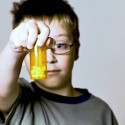How Drug Abuse Treatment Helps You Stay Clean and Sober
Whether addicted to drugs or alcohol, the physical and psychological effects of addiction can transform a normal everyday person into a shell of what he or she once was. Addictive substances are well known for their ability to alter brain function in such a way as to create a cycle of dependency that becomes all but impossible to break.
For many addicts, drug abuse treatment offers the only means for breaking the hold of drugs on their lives. Drug abuse treatment programs have a long history of research and practice and employ proven methods for helping addicts overcome addiction’s hold.
By addressing addiction at its roots, drug abuse treatment programs can best prepare addicts for the challenges they’ll face in recovery and equip them with the tools they’ll need to stay clean and sober for the long-term.
Support & Guidance

Addiction treatment helps you by providing the help, support, skills and resources you need to recover.
According to the National Institute on Drug Abuse, addiction functions as a complex illness that not only impairs the body’s health but also takes over a person’s reasoning and decision-making abilities. This means someone trying to fight addiction on his or her own is already at a disadvantage in light of the mind’s diminished capacity.
Drug abuse treatment programs help addicts work through the many factors that drive the addiction cycle, from the body’s physical dependency to the mind’s psychological need for the drug. Through a series of step-by-step interventions, addicts develop a range of coping mechanisms designed to promote ongoing abstinence.
Drug abuse treatment interventions may take the form of –
- Medication therapies
- Individual and group psychotherapy
- Drug education training
- Relapse prevention strategies
In effect, treatment process works to provide a person with a solid foundation for living a drug-free life.
Treating the Roots of Addiction
Most every addictive drug works by altering essential chemical processes in the brain. Chemicals such as dopamine, GABA, serotonin and norepinephrine regulate most every major function throughout the brain and body.
Most notably, drugs alter the brain’s reward system, which determines what motivates a person’s beliefs and behaviors. These effects lie at the heart of the addiction cycle.
Drug abuse treatment programs spend a considerable amount of time helping addicts undo the psychological effects of drugs on the brain. Through ongoing counseling, psychotherapy and support group work, drug abuse treatment programs help recovering addicts develop the type of mindset that can cope with everyday life without the need for drugs.
Developing a Drug-Free Lifestyle
Addiction’s effects in a person’s life extend well beyond the drug’s effects on a person’s mind and body. With addiction comes a lifestyle made up of certain people and places that support or encourage continued drug use. Replacing this lifestyle is an essential requirement if a person intends to stay clean and sober.
Drug abuse treatment addresses this lifestyle issue at the outset, from the minute a person sets foot inside the facility. The combined influence of the treatment staff and like-minded peers becomes the starting point for creating a lifestyle that promotes drug-free living. From there, a person works through the underlying emotional conflicts and issues that drive addiction tendencies.
In effect, drug abuse treatment provides a person with the tools needed to build a healthy lifestyle that centers on staying clean and sober.


